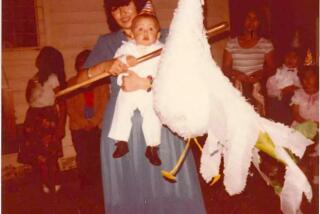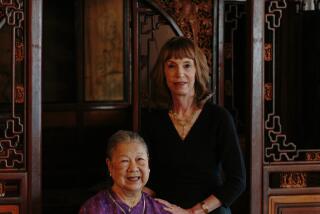‘Madame Mao’s Memories’
- Share via
I’m puzzled by Nancy Churnin’s criteria (“ ‘Madame Mao’: Just One View,” May 16). She states that “writing from Madame Mao’s point of view leaves out crucial questions, such as why she embraced the book and theatrical bannings, the executions, the persecutions.”
The answer is obvious: Power . The hurt and abused little girl grew up angry and desperate to gain complete power over all those who had abused their power over her. It is all there and central to the theme--how her many humiliating experiences led her to become one of the most corrupt and ruthless persons in history. It was a fascinating theater experience.
I can’t agree either that “Madame Mao’s Memories” should have been more like “Evita.” Letting Madame Mao tell her own story without any commentator revealed her better than anyone else could.
Theater is not so much education as it is spiritual. It can challenge and stretch us. It can enable us to understand others and ourselves better. If we gain understanding in our gut from this dramatic experience, we may be able to avoid our own abuses of power.
HOLLY B. WILKINS
San Diego
More to Read
The biggest entertainment stories
Get our big stories about Hollywood, film, television, music, arts, culture and more right in your inbox as soon as they publish.
You may occasionally receive promotional content from the Los Angeles Times.










